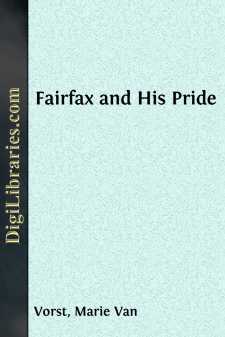Categories
- Antiques & Collectibles 13
- Architecture 36
- Art 48
- Bibles 22
- Biography & Autobiography 815
- Body, Mind & Spirit 144
- Business & Economics 28
- Children's Books 18
- Children's Fiction 14
- Computers 4
- Cooking 94
- Crafts & Hobbies 4
- Drama 346
- Education 58
- Family & Relationships 59
- Fiction 11833
- Games 19
- Gardening 17
- Health & Fitness 34
- History 1378
- House & Home 1
- Humor 147
- Juvenile Fiction 1873
- Juvenile Nonfiction 202
- Language Arts & Disciplines 89
- Law 16
- Literary Collections 686
- Literary Criticism 179
- Mathematics 13
- Medical 41
- Music 40
- Nature 179
- Non-Classifiable 1768
- Performing Arts 7
- Periodicals 1453
- Philosophy 65
- Photography 2
- Poetry 896
- Political Science 203
- Psychology 44
- Reference 154
- Religion 515
- Science 126
- Self-Help 85
- Social Science 82
- Sports & Recreation 34
- Study Aids 3
- Technology & Engineering 59
- Transportation 23
- Travel 463
- True Crime 29
Our website is made possible by displaying online advertisements to our visitors.
Please consider supporting us by disabling your ad blocker.
Fairfax and His Pride
by: Marie Van Vorst
Description:
Excerpt
CHAPTER I
One bitter day in January in the year 1880, when New York was a tranquil city, a young man stood at the South Ferry waiting for the up-town horse car. With a few other passengers he had just left the packet which had arrived in New York harbour that afternoon from New Orleans.
Antony Fairfax was an utter stranger to the North.
In his hand he carried a small hand-bag, and by his side on the snow rested his single valise. Before him waited a red and yellow tram-car drawn by lean horses, from whose backs the vapour rose on the frosty air. Muffled to his ears, the driver beat together his hands in their leather gloves; the conductor stamped his feet. The traveller climbed into the car, lifting his big bag after him.
The cold was even more terrible to him than to the conductor and driver. He had come from the South, where he had left the roses and magnolias in bloom, and the warmth of the country was in his blood. He dug his feet into the straw covering the floor of the car, buttoned his coat tight about his neck, pushed his hands deep in his pockets and sat wondering at the numbing cold.
This, then, was the North!
He watched with interest the few other passengers board the little car: two fruit vendors and after them were amiably lifted in great bunches of bananas. Antony asked himself the question whether this new country would be friendly to him, what would its spirit be toward him, he asked this question of the cold winter air the city suddenly took reality and formed for him out of his dreams. Would it be kind or cruel? The coming days would answer: meanwhile he could wait. Some places, like some people whom we meet, at once extend to us a hand; there are some that even seem to offer an embrace. Through the car blew a sudden icy blast and New York's welcome to Fairfax was keen as a blow. There was an actual physical affront in this wind that struck him in the face.
Suppose the elements were an indication of what the rest would be? But no—that was ridiculous! There would be certainly warm interiors behind the snow-fretted panes of the windows in the houses that lined the streets on either side. There would be warm and cordial hearts to welcome him somewhere. There would be understanding of heart, indulgence for youth. He would find open doors for all his ambitions, spurs to his integrity and effort. He would know how to make use of these ways and means of progress. For years he had dreamed of the galleries of pictures and of the museum. It was from this wonderful city whose wideness had the intense outreach of the unknown that Fairfax had elected to step into the world.
New York was to be his threshold. There was no limit to what he intended to do in his special field of work. From his boyhood he had told himself that he would become great. He was too young to have discovered the traitors that hide in the brain and the emptiness of the deepest tears. He was a pioneer and had the faith of the pioneer. According to him everything was real, the beauty of form was enchanting, all hearts were true, and all roads led to fame....


